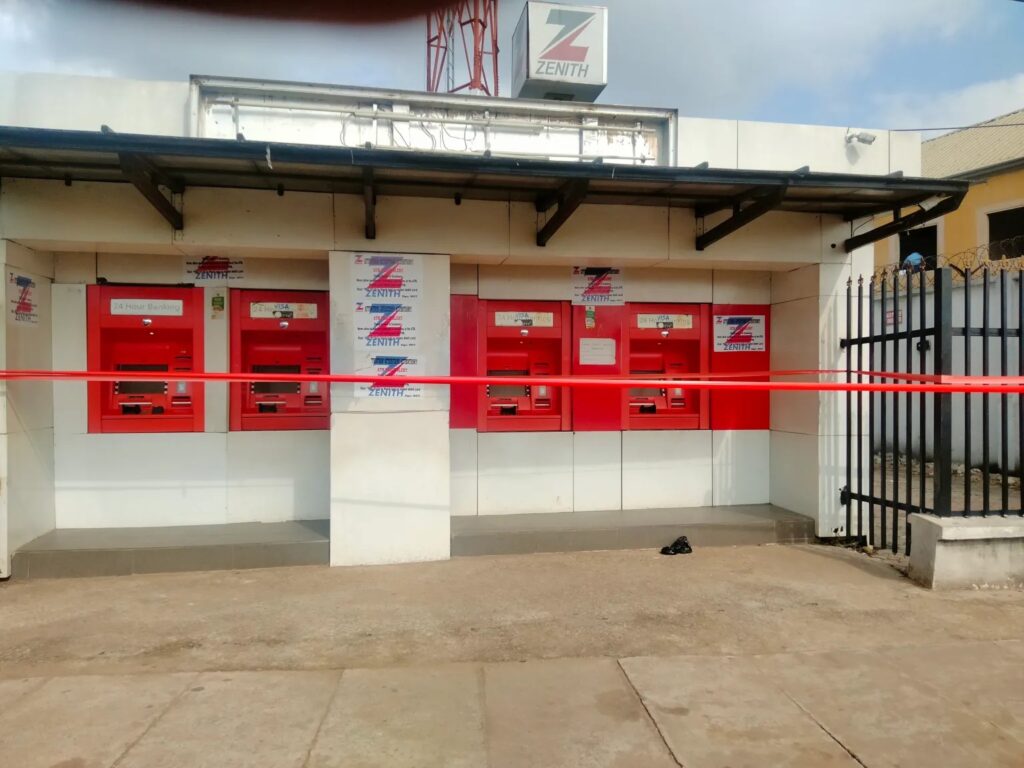Social Media and print media have been agog this week with the issue between the Imo State Government and the Former Deputy Governor of Imo State, Prince Eze Madumere whose entitlements have since 2019 remained unpaid.

It can be recalled that Zenith Bank received a Court Order in relation to an Absolute Garnisheee granted in favor of the Former, Imo Deputy Governor who served Rochas government faithfully for several years only to be denied allocations due to him for eight good years.
After the sealing of all Zenith Bank Branches in Imo State, the State government went ahead to commence media propaganda by circulating false stories stating that the matter was before the appeal court as at the 2nd of June, 2022.
As if this wasn’t enough by the early hours of today being the 3rd of June, they also went further to circulate the attached court order from a high court banning Zenith and several other banks from transferring any funds out of government account.
They failed to tell the bank that the order was for another garnishee matter involving the parties listed on the court order and the state government, which is due to be heard next week. Since they are scrambling to not sink into the ocean they decided to hide under the guise of this order to unseal a sealed bank unlawfully and in a very uncivilized manner.
The branch Managers of Zenith Bank quickly pleaded that the Court reseal their branches after discovering the penalty behind not obeying the first court order. Again today these branches were sealed off only for government-sponsored hoodlums led by Chinasa and some police officers to unseal the banks again and arrest court officials doing their job.
For the sake of clarity especially for those who have no idea what the laws backing garnishees are we have provided a little insight to enable everyone understand what it is all about below:
Understanding Garnishee Proceedings In Nigeria : Garnishee proceeding otherwise known as ‘garnishment’ is a judicial process of execution or enforcement of monetary judgment whereby money belonging to a judgment debtor, in the hands or possession of a third party known as the ‘Garnishee’ (usually a bank), is attached or seized by a judgment creditor, the ‘Garnisher’ or ‘Garnishor’, in satisfaction of a judgment sum or debt. By its nature, Garnishee proceeding is “sui generis”, and different from other Court proceedings, although it flows from the judgment that pronounced the debt.1 The extant laws regulating Garnishee proceedings are the Rules of Courts, case laws, the Sheriff and Civil Process Act, Cap S6 Laws of the Federation of Nigeria, 2004 (“SCPA”) and the Judgment (Enforcement) Rules (“JER”) made pursuant to Section 94 of the SCPA.
Garnishee proceedings
Generally, Garnishee proceedings is done in two different stages.2 The first stage is for the garnishee order nisi, while the second stage is for the garnishee order absolute.
At the first stage, the judgment creditor makes an application ex parte to the Court (which need not be the court that gave the judgment) that the judgment debt in the hands of the third party, the Garnishee, be paid directly to the judgment creditor unless there is explanation from the Garnishee why the order nisi should not be made absolute. If the judgment creditor satisfies the Court on the existence of the Garnishee who is holding money due to the judgment debtor, such third party (Garnishee) will be called upon to show cause why the judgment debtor’s money in its hands should not be paid over to the judgment creditor, and if the Court is satisfied that the judgment creditor is entitled to attach the debt, the Court will make a garnishee order nisi attaching the debt.3 It is important to note that where the Garnishee proceedings is before a court other than the Court that gave the judgment, a certified copy of the judgment must be attached to the ex-parte application.4
The essence of the order nisi is to direct the Garnishee to appear in court on a specified date to show cause why an order should not be made upon him for the payment to the judgment creditor of the amount of debt owed to the judgment debtor. By statute, a copy of the order nisi must be served on the Garnishee and judgment Debtor at least 14 days before the adjourned date for hearing.
Once a bank, being a garnishee, is served with a garnishee order nisi, the bank’s right to pay on cheques is suspended, and the bank at this point is free to set off the judgment debtor’s credit balance against the actual indebtedness to the bank, to determine the net balance properly owed for the purpose of the proceedings.
The second stage is for the garnishee order absolute, where on the adjourned date, the Garnishee fails to attend court or show good cause why the order nisi attaching the debt should not be made absolute, the Court may subject to certain limitations make the garnishee order absolute.
Without wasting further ink on paper, It is obviously clear even to a layman clearly by now that the Imo State Government is violating Court Order while floating another garnishee court order due to be heard next week which clearly did not bear the name of the former Deputy Governor on it, as a guise to distort due payment of an already cleared absolute garnishee.
Zenith Bank obviously knows the implications of flaunting Court orders as their manager has since commenced pleading for the court to reseal their premises which were rudely unsealed by some government hoodlums under duress. Both conniving parties should be prepared to pay the penalties when the Law beckons on them.